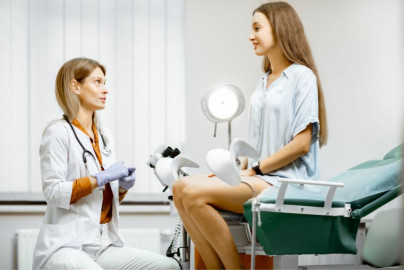Blog

The Importance of Regular Gynecological Check-ups: What to Expect
Regular gynecological exams are crucial for maintaining your reproductive health and overall well-being. This article provides an overview of the importance of gynecological check-ups and what to expect during routine visits.
What to Expect During a Gynecologic Check-up
Routine gynecological exams offer comprehensive diagnostic and preventative care. A typical well-person exam often includes:
- Medical History Review - including a history of past pregnancies and deliveries
- Complete Physical Exam - including a blood pressure measurement, breast, and pelvic exams
- Various Health Screenings - for different conditions, such as sexually transmitted infections (STIs) if indicated, regular pap smears to screen for cervical cancer, and other tests as needed
- Contraceptive Options Review - to discuss details on various birth control options
- Gynecological Assessment - to assess reproductive disorders, perimenopausal and menopausal symptoms, fertility problems, and more.
- Vaccine Administration - to administer vaccines (e.g.., human papillomavirus (HPV) vaccine)
- Lifestyle Counseling - involves educating clients on certain modifications such as diet and exercise
Importance of Regular Gynecological Exams
Regular gynecological exams may involve preventative care, patient education, physical assessments, and more.
Preventive Care
Your gynecologist can detect potential problems early. Early diagnosis and intervention can make a substantial impact on treatment outcomes for conditions such as cervical cancer, breast cancer, and other illnesses.
Preventative care includes screenings such as breast exams, pap smears for cervical cancer screening, and pelvic exams to evaluate the health of reproductive organs.
Breast Exams
Breast exams and mammograms are procedures performed as part of preventative gynecological care to screen for breast cancer.
Sexual Health and STI Screening
Gynecological check-ups provide an opportunity to talk about sexual health, including how to avoid STIs and methods of engaging in safe sex practices. STI screening may be recommended depending on various factors, such as a person’s sexual activity.
Gynecological Health Management
Regular exams with your gynecologist allow your doctor to evaluate any symptoms of gynecological conditions such as endometriosis, dysmenorrhea (i.e., painful menstruation), ovarian cysts, fibroids, and other conditions.
Regular check-ups often involve managing preexisting gynecological conditions and adjusting treatment plans.
Menstrual Health
A gynecologist can address menstrual cycle concerns, such as irregularities and associated symptoms. For those planning to start a family, the gynecologist may also discuss any fertility concerns linked with irregular menstrual cycles or other symptoms.
Perimenopause and Menopause Management
As women age, gynecological check-ups become essential for managing menopause and perimenopause (when the body transitions to menopause) symptoms. Your gynecologist can advise you about health concerns commonly linked with aging and menopause (e.g., sleep problems, hot flashes, weight gain, and bone health). They can also discuss whether treatment, such as hormone replacement therapy (HRT), is a good option for you.
Patient Education
Patient education can be part of preventative care to teach you how to stay healthy. Counseling is also aimed at helping you manage or improve concerns, such as reproductive health or pre-existing conditions.
Vaccinations
Vaccinations, such as the human papillomavirus (HPV) vaccine, may be discussed during a gynecological check-up. You can have the vaccine administered during your exam if you and your doctor decide it's a good idea.
Reproductive and Fertility Counseling
Reproductive counseling supports individuals and couples in their journey to becoming parents. Third-party reproduction, assisted reproductive technology (ART), and fertility preservation may be discussed.
Contraceptive Counseling
With the help of a gynecologist, you can make an informed decision about what type of contraception is best for you based on your lifestyle, preferences, personal health factors, and future family planning goals.
Lifestyle Counseling
Lifestyle counseling, including diet, exercise, and stress management, is aimed at helping a person lose weight, deal with depression, or manage other conditions.
A healthy lifestyle can promote a higher energy level, improvement in mood, a reduced risk of health issues, and even a longer lifespan.
Schedule Your Exam Today
Pacific Women’s Obstetrics & Gynecology specialists deliver specialized gynecological care, such as comprehensive gynecological exams, in-depth preventative care, thorough diagnosis, and individualized treatment to help women maintain long-term optimal health. Contact us today to schedule your annual gynecological exam.
Back to blog